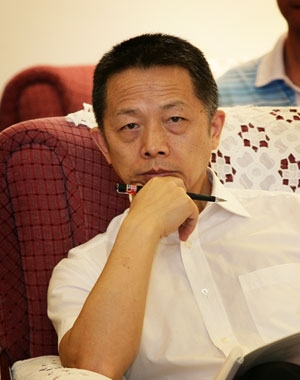
Professor Long Zhongzhi is PH.D of Law, chief expert of 985 Project Platform of Sichuan University, professor of Law School of Sichuan University, doctoral supervisor, director of Law Institute. he is also the standing director of China Law Society, the special invited expert consultant of the Supreme People’s Court and the Supreme People’s Procuratorate, the vice president of Association of China Procuratorial Science, the vice president of Association of China Criminal Procedural Law, a member of Review Groups of Law Subject of the National Found Project of Social Science, a Council Member of International Association of Evidence Science.
His main research areas are Criminal Procedural Law, Judicial System and Evidence Law. He founded the triangle structure and linear structure namely the theory of “dual structure” of criminal procedural in the early 90s of last century. In the late 90s, he probed the rationality of judicature and came up with “Relative Rationalism” in judicial reform and operation which had significant influence both in theory and practice in China. He proposed to build “large evidence science scholarship” which coalesces basic science and applied science, proposed and demonstrated the “confirming proof pattern” of Chinese criminal proof system. He also published a series of influential research papers about the prominent problems in judicial practice.
Here are some of his works The Ideas, Systems and Methods of Evidence Law , Relative Rationalism, Linger Between the Tradition and Modern Times –Research on the Remodification of Chinese Criminal Procedural Law, Theory Opposes Practice, Research on Criminal Court Hearing System, How the God Try. His main papers on Evidence Law are as follows: Discussion about the Proof Standard of Criminal Procedure, The Moral Demarcation Line Between Fraud and Criminal Judicial Act, Justification and Principle of Discretional Evidence –Primary Exploration of the Proof Patten of Chinese Criminal Procedural, System of Evidence Classification and its Reform, The Construction and Scientific Principle of “Large Evidence Scholarship”, Some Issues of Legality of Subject of Evidence Investigation, Demarcation Line and Use of Presumption and so on ( papers above are published on Chinese Journal of Law); Research of Some Issues about the Norm and Execution of the Two Evidence Rules, Discussion of Construct the Mechanism of Facts Affirmation Centered about First Trial, Discussion of Evidence Contradiction and Contradiction Analysis Method, Written Testimony and its Use, Discussion of Patterns of Criminal Court Hearing in Our Country, Discussion of Cross-examination System in Criminal Trial in Our Country and so on ( papers above are published on China Legal Science).

